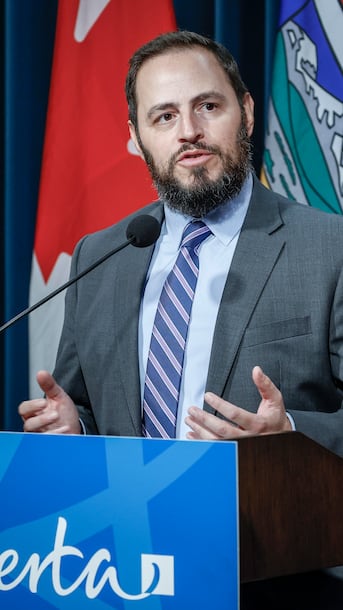Business groups in Alberta say the teachers' strike has damaged the province's economy – and while there is optimism that students will return to school on Wednesday, the way the dispute is resolved means there is more uncertainty about what will happen next.
Members of the Alberta Teachers Association have been on strike since October 6. This week the province used the notwithstanding clause to force teachers back to work – a move that was widely criticized by labor groups who suggested there could be a broader union response.
While children were out of school, small businesses in the province suffered on two fronts, according to the Alberta chapter of the Canadian Federation of Independent Business (CFIB).
First, it impacts productivity when parents take time off to look after their children or are otherwise distracted from work, says senior policy analyst Kayode Southwood.
Teachers say they are reeling from the government's decision to introduce Bill 2 but will continue to fight for better classroom conditions.
For businesses located near schools, the strike also meant a more direct hit to their sales, he said.
Jamie Senturk, who owns a pizzeria on 17th Avenue in Calgary, next to one of the city's largest high schools, said his lunchtime attendance has dropped by about 60 per cent and he's cut several shifts as a result.
“Because I don't have children, I can't fully understand what parents and teachers have gone through during this time, but I can say with confidence that it has had a big impact on our business,” said Senturk, owner of the Uncle Fatih's Pizza franchise.
Ehsan Al Shammari, owner of another nearby restaurant popular with students, said his business had also become much quieter in recent weeks.
He believes this is not only due to a lack of students, but also due to the broader economic impact of thousands of teachers working without pay and families staying home.
“We are experiencing the impact of the strike on our economy,” said Al-Shammari, owner of Shawarmalicious. “Not only in my restaurant – everywhere. It's everywhere.”
Widespread Impact
Chief Economist for Alberta Central Charles Saint Arnaud I agree that the economic consequences of a teachers' strike are varied. In a report earlier this month, he noted that parents and especially teachers are likely to cut back on their spending due to the strike, child care leave or paying for extra child care, which could negatively impact other parts of the economy.
Deborah Yedlin, president and CEO of the Calgary Chamber of Commerce, said she is also concerned about the loss of study time for students preparing to enter post-secondary education. The city needs all the human capital it can get, she said, and any hit to student education is a potential problem.
“When you have students who have lost that much time, especially if they are in high school, it should be a concern,” Yedlin said.
CFIB's Southwood said his organization hoped the strike wouldwill ultimately be resolved through mutual agreement, although many businesses will still welcome a return to stability.
The Alberta government invoked this provision in its back-to-work legislation, ending the teachers' strike. This clause allows provinces to override rights guaranteed by the Charter.
But there is a possibility that more labor disputes could be on the horizon. The Alberta Federation of Labor warned the group “will not allow [the province] continue, unopposed, their anti-democratic and anti-worker program.”
Speaking to reporters on MondayPresident Gil McGowan would not confirm whether the coalition of labor groups known as the Common Front might consider a province-wide strike, but he said it was an option that was “actively being considered.”
Jason Foster, a labor relations professor at Athabasca University, said Alberta doesn't have a history of widespread labor mobilization, but he wouldn't rule it out.
“We're dealing with an unprecedented piece of legislation,” Foster told Electric current guest presenter Catherine Cullen. “And this could lead to an unprecedented response.”
In 2022, Ontario Premier Doug Ford's government attempted to ban the education workers' strike by passing the Strike Prevention and Contract Force Act. The bill included the use of a notwithstanding clause.
In response, CUPE workers walked off the job, leading to the closure of hundreds of schools.
Foster said the strong backlash from people in Ontario and the labor movement as a whole forced Ford to back down. The province then repealed the law entirely.









